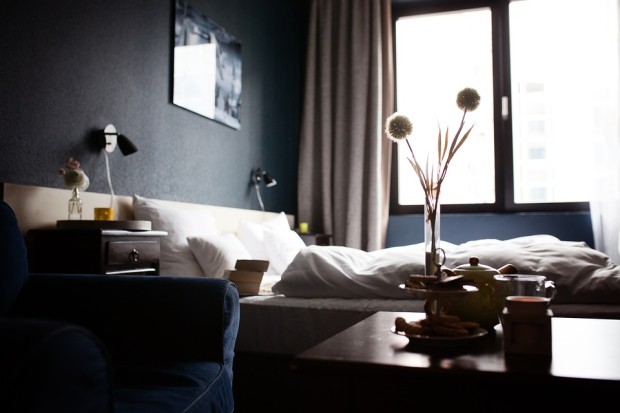In London, 60% of residents are expected to be renters in 2025, according to recent research from PwC. This is a huge portion of the capital’s population, and although we often hear a lot about ‘generation rent’, the conversation sadly doesn’t always extend to the variable security in rented homes. Research by the Police Foundation in 2015 showed that neighbourhoods with more privately rented homes suffer from more burglaries and higher levels of violence. Consequently, home security is more important than ever for renters.
Rick Muir, director of the Police Foundation, reacted to the news by claiming “too much of the private rented sector is of poor quality, with insecure doors and windows, and tenants living in overcrowded shared housing which can be stressful and lead to violent crime.” For those justifiably concerned about break-ins, we’ve rounded up some expert security advice for renters that could save you a lot of stress.
Invest in good locks and use them
You may be hesitant to improve the security of your rented property; however, if you don’t think the current locks suffice, or want to change them for extra security, you have every right to request this. Unless specifically stated in the tenancy agreement, your landlord does not have the right to keep a key, and does not have the right to enter the property at will. However, renters do need to allow landlords reasonable access to make repairs.
Yet, the costs of secure deadbolts, professionally fitted locks and secured windows are minimal compared to the financial and emotional toll a break-in can have. 32% of burglars enter a home through an open door, so buying and using quality door locks are an essential component of home security. Bridger Security also cite window locks as a “critical aspect of security” which are often overlooked by many homeowners, pointing to a Guardian article in which a former burglar recommended “put[ting] locks on every window” to ensure maximum security.
Even the most secure locks and the best security alarm systems will be rendered useless if they’re not used properly. Police.uk recommend locking all doors and windows every time you leave the house, even if you’re just out in the garden. Similarly, insurers may withhold paying out if a burglary happens as a result of a carelessly-opened door. Speaking of which…
Get insured
If you don’t already have renters’ or tenants’ content insurance, you should look into getting it immediately. Contents insurance policies offer protection in the event of any of your personal items (that are not permanently fixed to the property) being stolen.
Not only does tenants’ content insurance cover home burglaries, but also vandalism and water or fire damage. It is worth noting that this will not cover the property itself, for which you would need building insurance. However, this is the responsibility of the landlord and not the tenant.
Install wireless alarms
Home alarm systems are undoubtedly the most effective deterrent against burglary. Not only can they scare off would-be burglars, they make the job of those that do try and break into a property that much more difficult.
However, there’s a problem: many companies won’t sell alarms to renters. Traditionally, getting alarms fitted would need the permission of the landlords, as alarm systems required structural alterations to a property, through wiring and installation. That’s why wireless burglar alarms can be lifesavers for renters, as they are easy to install, involve no damage to the property and can be taken with you when you move. However, you should not do this without informing your landlord or letting agency.
Communicate with your landlord
For renters, it’s important that you are not afraid to ask questions, no matter how big or small. When choosing a flat or a house make sure you consider the landlord as well as the costs. You must also look up your rights as a tenant, and thoroughly read your lease agreement.
Effective communication between renter and landlord is vital for both parties to achieve the shared goal of keeping the property safe and secure. While this is easier said than done, new apps such as TenantLoop are trying to break the ice and assisting both landlords and tenants with achieving professional, seamless and efficient real-time communication.










